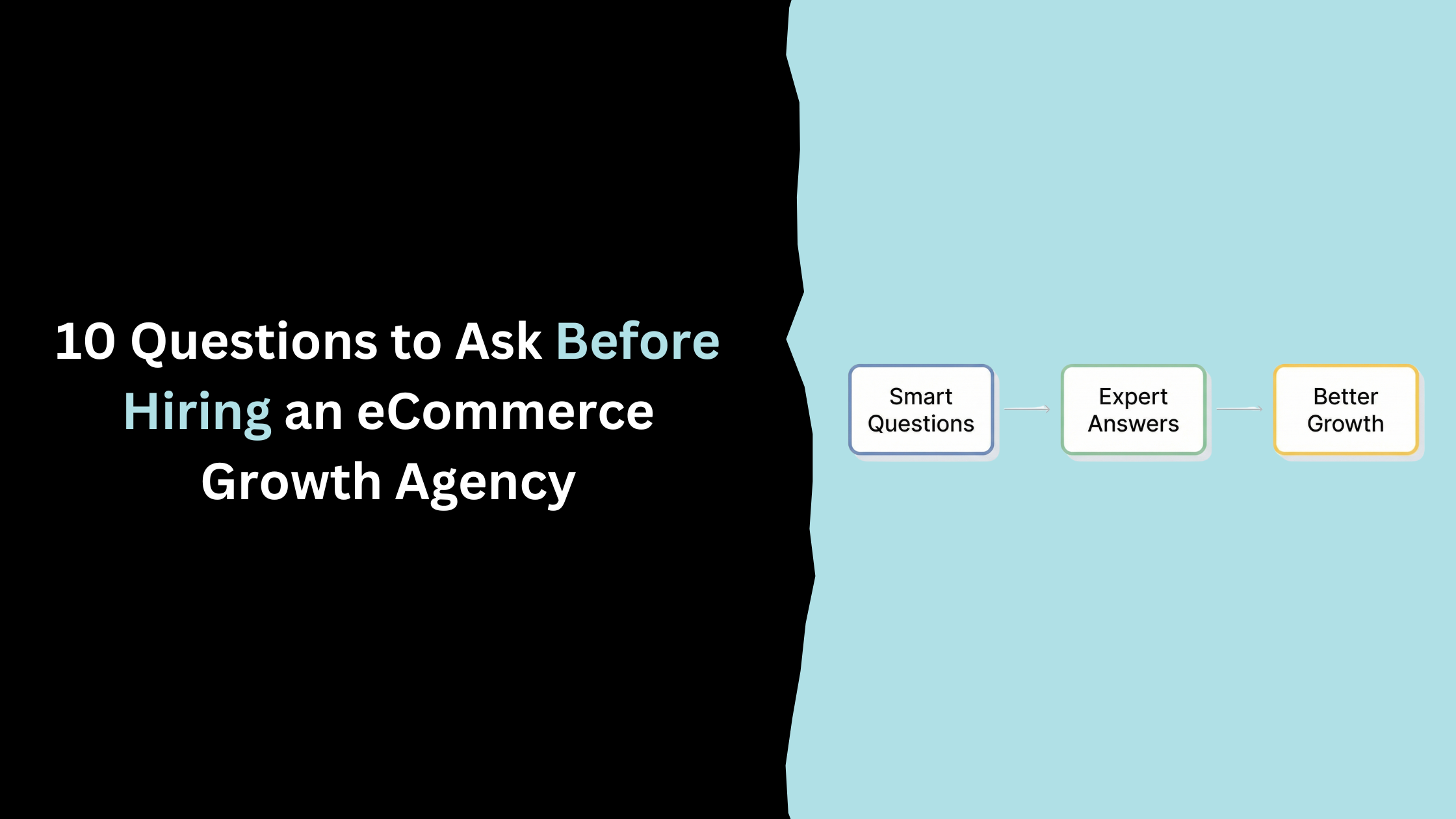Table of Contents
Mastering Magento SEO is crucial for boosting your online store's visibility and becoming a search engine favourite. With Magento's robust features and flexibility, mastering SEO on this platform can transform your eCommerce site into a search engine favourite.
You're in the right place if you're looking to boost your Magento store's rankings and drive more organic traffic. From optimising product pages to enhancing site speed, we'll dive into the essentials of Magento SEO that can set your site apart from the competition. Let's unlock the potential of your online store together.
Key Takeaways
- Emphasise Technical SEO Foundations: Magento's architecture supports SEO-friendly URLs and mobile responsiveness. Boosting site speed through server optimisation and choosing the right hosting is key for better search rankings.
- Utilise Magento’s Built-In SEO Features: Maximise the platform's native SEO capabilities, like search-friendly URLs, meta tags, and xml sitemap generator, while overcoming limitations with extensions and content updates.
- Focus on Content and Keywords: Effective keyword research and integrating these keywords naturally into product titles, descriptions, and URLs are essential. Quality content, be it through product descriptions or blogs, should cater to user queries and be SEO optimised.
- Strengthen Site Structure for Enhanced UX and SEO: A logical hierarchy, simplified navigation, and breadcrumbs improve user experience and aid in better indexing by search engines.
- Invest in Advanced SEO Techniques and Analytics: Leveraging SEO extensions, implementing structured data for rich snippets, and optimising for mobile and multilingual SEO are advanced strategies. Monitor SEO performance through tools like Google Analytics and Google Search Console.
- Address Common Challenges Proactively: Duplicate content and site migrations are common issues in Magento SEO. Using canonical tags, ensuring consistent use of HTTPS, and planning for redirects during migrations are vital steps to mitigate these challenges.
Understanding Magento SEO
What is Magento SEO?
Magento SEO is the process of optimising your Magento eCommerce store to rank higher in search engine results pages (SERPs). It involves tweaking various elements of your magento website, from the content you publish to the way your site is structured.
How Magento SEO Differs From General SEO Practices
While the core principles of SEO apply across the board, Magento SEO has its quirks. The platform's flexibility allows for a wide range of customisations, which can be both a blessing and a curse. Properly harnessing Magento's SEO capabilities requires an understanding of its unique features and how to optimise them to your advantage.
The Technical Foundation of Magento SEO
Magento Architecture and SEO
Magento's architecture is robust, offering SEO-friendly features like clean URLs and mobile responsiveness out of the box. However, to fully leverage Magento for SEO, you'll need to dive deeper into its structure. This includes optimising your site's layout, improving navigation, and ensuring that your content is easily crawlable by search engines.
Server Optimisation for Magento
Your server's performance can significantly impact your Magento site's SEO. Sites that load quickly have an edge in search rankings. Therefore, choosing the right hosting environment and implementing caching are crucial steps in optimising your Magento store for speed.
Magento SEO Capabilities
Built-in SEO Features in Magento
Magento comes packed with a range of SEO features, including:
- Search-friendly URLs
- Meta tags for products and categories
- A sitemap generator
- Google Analytics integration
These tools are at your disposal to improve your store's search engine visibility.
Limitations and How to Overcome Them
Despite its strengths, Magento does have limitations. For instance, the default settings might not be optimised for your specific SEO goals. Overcoming these limitations often involves installing additional extensions, tweaking your store's settings, and regularly updating your content to adhere to best SEO practices. Doing so allows you to push past Magento's native capabilities and craft an SEO strategy that drives significant organic traffic to your store.
Key Magento SEO Strategies
Keyword Research for Magento
Tools and techniques for effective keyword research
To nail down your SEO strategy, you first need to get your keyword research right. There's a sea of tools out there, like Google Keyword Planner and Semrush, tailored to help you find the perfect keywords. They let you peek into what your target audience is searching for, ensuring your Magento store meets their needs spot on.
Incorporating keywords into your Magento site
Once you've got your keywords, the next step is seamlessly weaving them into your Magento site. Include them in your product titles, descriptions, and even URLs. But remember, stuffing your content with too many keywords can backfire. Keep it natural and relevant.
Optimising Magento Product Pages
Title tags and meta descriptions
Title tags and meta descriptions are your first impression on search engines and potential customers. Keep them punchy and packed with your main keywords. This way, you're telling search engines exactly what each page is about, boosting your visibility.
High-quality product images and alt texts
Visuals can make or break the customer's decision to buy. Ensure your product images are crisp and fast-loading. Don't forget to add alt texts with relevant keywords. It's a two-for-one deal: improving accessibility and feeding search engines valuable information.
Product descriptions and SEO-friendly URLs
Craft engaging, keyword-rich product descriptions that answer your customers' questions. Also, make your URLs readable and keyword-focused. This doesn't just appeal to visitors; it's also gold for your search engine rankings.
Site Structure and Navigation
Creating a logical site hierarchy
A clear, logical site structure is key for user experience and SEO. Structure your Magento store so visitors and search engines can navigate easily. This means having a straightforward menu and a logical flow from your homepage down to your product pages.
The role of breadcrumbs in SEO
Breadcrumbs aren’t just for fairy tales. They help users understand where they are on your site and how to get back. Plus, they give search engines another layer of structure to crawl. It’s a simple touch that boosts your SEO significantly.
Optimising category pages
Your category pages are more than just shelves for your products. They’re valuable SEO assets. Include descriptive, keyword-rich texts that guide your customers and appeal to search engines. Think of them as the signposts of your Magento store.
Technical SEO for Magento
Mobile optimisation
With more searches happening on mobile devices, your Magento site must be mobile-friendly. This means lightning-fast load times and responsive design. Google loves mobile-optimised sites, and so will your customers.
Site speed enhancements
Slow and steady doesn’t win the race in the online world. Speed up your Magento site with caching, image optimisation, and minimising JavaScript and CSS. Faster sites mean happier customers and a higher search ranking.
Secure sockets layer (SSL) implementation
Security is a top priority for users and search engines alike. An SSL certificate secures your site and improves your search rankings. It’s an essential trust signal for anyone visiting your Magento store.
Content Marketing for Magento
Blogging with Magento
Blogging isn’t just for sharing thoughts and ideas. It’s a powerful tool to drive traffic to your Magento site. Create blog posts that answer your customers' questions and include your target keywords. It’s a great way to engage your audience and boost your SEO efforts.
Creating engaging and SEO-friendly content
Content is king, but quality and relevance are its crown jewels. Craft content that resonates with your audience and includes your targeted keywords naturally. Engaging, useful content is shared more, creating backlinks that bolster your SEO.
Link Building Strategies
Internal linking practices
Internal links guide visitors through your site, keeping them engaged longer. They also help search engine crawlers crawl your site more effectively. Use internal links to connect your content and products, making sure each link adds value for your visitors.
Acquiring high-quality external links
External links from reputable sites are a vote of confidence in your Magento store. They tell search engines your site is valuable and trustworthy. Focus on creating stellar content that others want to link to, and don’t shy away from reaching out to industry leaders to share your content.
Advanced Magento SEO Techniques
Leveraging Magento SEO Extensions
Popular SEO Extensions for Magento
Magento's ecosystem is rich with SEO extensions that can take your site's performance to the next level. Extensions like Yoast, MageWorx SEO Suite, and Mirasvit SEO Toolkit are game-changers. They offer comprehensive solutions, from keyword optimisation to improved indexing.
How to Choose the Right Extensions
Selecting the right extension involves assessing your site's specific needs and compatibility. Always check user reviews, support availability, and update frequency before making a decision.
Structured Data and Rich Snippets
Implementing Schema Markup
Schema markup is crucial for enabling search engines to understand your content better. Integrating these rich snippets will help display your products more attractively in search results.
Benefits of Rich Snippets for eCommerce
Rich snippets can significantly increase your click-through rates. Highlighting key information such as prices, ratings, and stock status makes your listings stand out in the search results.
Multilingual and Multi-Regional SEO
Optimising for Different Languages and Regions
Expand your market reach by optimising your Magento store for multiple languages and regions. Use hreflang tags to help search engines serve searchers the correct language or regional URL.
Best Practices and Common Pitfalls
Be mindful of accurate translations and cultural differences. Avoid common pitfalls like using automated translations without review and ensure all SEO elements are localised.
Magento SEO Analytics and Tools
Essential SEO Metrics to Track
Tracking metrics like organic traffic, bounce rate, conversion rate, and keyword rankings will give you insights into your SEO performance and areas for improvement.
Recommended Tools for Monitoring Magento SEO Performance
Leverage tools such as Google Analytics, Google Search Console, and Semrush. They provide a wealth of data for making informed decisions and tweaking your strategy.
Crawling & Indexing
Product & Category Page Canonical Tags
Use canonical tags on product and category pages to prevent duplicate content issues, guiding search engines to index the correct page version.
Canonical Tags in Pagination
Implement canonical tags in paginated series to signal search engines about the main content page and enhance crawling efficiency.
Indexable Internal Search Pages
Consider making high-value internal search pages indexable to capture long-tail search traffic, but avoid creating thin content pages.
Robots.txt
Customise your robots.txt file wisely to manage search engine crawling. Allow access to essential pages and disallow sections not meant for indexing.
Sitemap.xml
Ensure your sitemap.xml is automatically updated and submitted to search engines. It’s vital for helping search bots discover all valuable pages.
JavaScript Rendering
Understanding how search engines handle your JavaScript files is key. Ensure your Magento store’s dynamic content is fully accessible and indexable by search engine bots for optimal performance.
URL Paths
URL Optimisation in Magento
Crafting clear, concise URLs is critical. Magento allows for significant URL customisation helping improve user experience and SEO.
Keyword-Rich URLs
Incorporate relevant keywords into your URLs for an SEO boost. This practice can help improve rankings for those specific terms.
Custom URL Rewrites
Magento offers URL rewrite management. Use it to create SEO-friendly custom URLs for your products and categories.
Streamlined URL
Keep URLs short but descriptive. Avoid unnecessary parameters and strive for a clean, easy-to-read structure.
Redirects
Custom Redirects
Custom redirects protect your SEO authority if you need to move pages. They're a safeguard for your rankings, redirecting users and search engines to the new page location.
Automatic Redirects
Magento includes features for automatic redirects, aiding in maintaining link equity in case of URL changes.
Image Optimisation
Optimise Image Size and Format
Reducing image size without losing quality is crucial for loading times. Consider formats like WebP for a good balance between quality and file size.
Optimise ALT Tags and Image File Names
Use descriptive, keyword-rich ALT tags and filenames. They’re key for search engine image recognition and can aid in bringing traffic from image searches.
Common Magento SEO Challenges and Solutions
Enabling your Magento store to climb the SEO ranks isn't without its challenges. Let's delve into some common issues you might face and the solutions to optimise your site and prepare for the top.
Duplicate Content Issues
Understanding the Cause
Duplicate content on Magento stores often arises from multiple-page product descriptions, URL paramur search ranki to identify potential SEO issues. This allows you to address any problems before they affect your live site. Also, review your site’s SEO performance before and after the update to gauge its impact and make necessary adjustments.
Embracing these solutions ensures your Magento store remains optimised and competitive despite the challenges that may come your way. You'll keep your SEO on track with the right strategies, whether it’s duplicate content, site migration, or Magento updates.
Case Studies and Success Stories
Real-life Successes in Magento SEO
Magento has been instrumental in the success of various businesses across different industries, offering scalable and flexible eCommerce solutions that cater to diverse needs. Several case studies highlight Magento's ability to enhance SEO and drive business growth effectively.
Retail Apparel Group (RAG) - This leading men's clothing retailer leveraged Magento's eCommerce functionalities to simplify operations and boost business growth. By integrating Magento’s business intelligence and automated email marketing tools, RAG achieved a 25% increase in conversion rates, a 15% increase in average order value (AOV), and a reduction in website operating costs.
Bulk Powders - A sports nutrition company that saw a significant boost in their online presence with Magento, leading to 30% more monthly website visitors, a 35% increase in UK online sales, and a 100% increase in European sales.
Intelligentsia Coffee - Known for upscale coffee beans, Intelligentsia Coffee saw mobile conversions grow by 34%, mobile transactions by 16%, and overall mobile traffic by 40% after focusing on mobile UX rebuild with Magento.
Conclusion
Mastering Magento SEO is your key to unlocking the full potential of your online store. By fine-tuning your website's elements and leveraging Magento's unique SEO capabilities, you're setting your eCommerce site on the path to becoming a search engine favourite. Remember, it's not just about making one-time changes but about continuously updating your strategy and content to stay ahead in the SEO game. With the right approach and a commitment to optimising your site's performance, you can significantly enhance your store's visibility and drive more traffic. So, dive into the world of Magento SEO, apply the best practices, and watch your online store thrive in the competitive digital marketplace.
FAQs
What Are the First Steps to Take in Optimising a Magento Site for SEO?
Starting off, you'll want to audit your current SEO status thoroughly. Identify areas where your site's performing well and where it might be lagging. Key tasks include ensuring your Magento installation is up to date, optimising your product pages with relevant keywords, and making sure your site's architecture is search engine friendly. Don't forget to set up Google Analytics and Search Console to track your progress and identify areas for improvement.
How Often Should I Update My SEO Strategy?
In the rapidly changing world of SEO, staying on top of trends and algorithm updates is crucial. Aim to review and update your SEO strategy at least quarterly. However, monitoring your metrics more frequently, ideally monthly, to catch any sudden changes in your website's search engine performance is equally important. Staying proactive will enable you to adjust your strategy in real time, ensuring sustained visibility and traffic.
Can Magento Handle SEO for Large eCommerce Sites?
Absolutely! Magento is well-equipped to handle the SEO needs of large eCommerce sites. Its scalability and flexibility mean you can manage extensive product inventories and still maintain good SEO practices. However, consider leveraging Magento's advanced SEO extensions and tools to optimise a large site effectively. This ensures your large eCommerce business can maximise its search engine potential without compromising on performance or user experience.
What Are the Best Practices for Maintaining Site Speed on Magento?
Site speed is a critical factor for both SEO and user experience. Here are a few best practices for maintaining optimal site speed on Magento:
- Optimise Images: Ensure all images are compressed without sacrificing quality.
- Use Caching: Leverage Magento’s built-in caching features as well as external caching mechanisms.
- Minimise Extensions: Only install extensions that are essential, as too many can slow down your site.
- Regularly Update: Keep Magento and all extensions up to date for optimal performance and security.
How Can I Measure the Success of My Magento SEO Efforts?
Measuring the success of your SEO efforts involves tracking various metrics that reflect your site's performance in search results and its usability. Important metrics to monitor include organic traffic, bounce rate, conversion rate, keyword rankings, and page loading times. Tools like Google Analytics, Google Search Console, and Magento's own reporting features are invaluable in gathering this data. Regularly reviewing these metrics will give you insights into the effectiveness of your SEO strategy and help you make data-driven decisions.
Is Magento better than WooCommerce for SEO?
Choosing between Magento and WooCommerce for SEO depends on your business needs, technical expertise, and scalability requirements. Magento offers advanced SEO features and customizations for large-scale eCommerce, while WooCommerce is user-friendly and SEO-friendly, with a focus on content marketing. Ultimately, it comes down to whether you prioritise a highly customisable platform with advanced SEO tools or a user-friendly platform that still offers good SEO capabilities through plugins.
Get in touch today
complete the form below for an informal chat about your business








